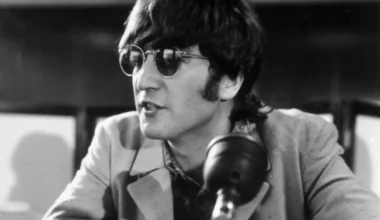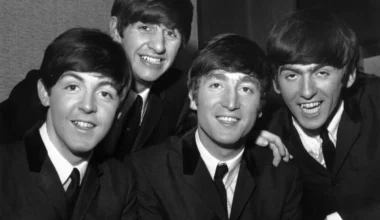Jimi Hendrix, Jimmy Page, Eric Clapton, and Jeff Beck are among the usual candidates for the ultimate guitar hero. The upper ranks are frequently brimming with blues-rooted electric guitarists from the late-1960s psychedelic era, but no single band has produced as much talent as The Yardbirds in the mid-1960s.
Three of the four names listed above-found success with The Yardbirds. Founded in 1963 with Top Topham as the first guitarist, the band had a rotating cast of musicians throughout its existence. Within a year, a young Eric Clapton replaced him, helping the band become famous among the British Invasion elite.
Clapton left in 1965 to pursue his dream of stardom with John Mayall and the Bluesbreakers. His departure left a void that Jeff Beck’s capable hands filled. Intriguingly, Beck and Page’s time in the band overlapped by several months. Two guitar goliaths clashed in a sonorous symbiosis, treating fans.
Beck left the band in November 1966 after a series of bitter disagreements, giving Page room to grow. Unfortunately, Beck’s departure signaled the start of an exodus that saw the band implode. Page eventually rebuilt the band around him as the New Yardbirds. However, legal forces soon compelled him to rebrand as Led Zeppelin.
While Clapton and Page never worked together as members of The Yardbirds, they were well aware of each other as two British guitar legends. Naturally, a friendly rivalry developed between the two in the late 1960s. Clapton embraced psychedelia with Cream, while Page laid the groundwork for Led Zeppelin.
Jimmy Page, Led Zeppelin’s early patron, and leader, paid for the band’s 1968 debut album himself. Satisfied with their sonic identity, he took the album to Atlantic Records, who gave Led Zeppelin a $1.5 million advance in today’s money. This is still the most generous advance the label has ever given one of its artists.
We can consider Page’s decision to approach Atlantic directly as somewhat unconventional at the time. Other well-known rock artists found stable homes at labels such as Decca, EMI, Polydor, and Atco, an Atlantic subsidiary with which Cream signed. However, Page sought distinction and avoided sharing a label with Clapton at all costs.
“I made it clear to them that I wanted to be on Atlantic rather than their rock label, Atco. This featured bands such as Sonny and Cher and Cream. In a 2012 interview with Guitar World, Page stated, “I didn’t want to be associated with those people. I wanted to be associated with something more classical.”
“They were aware of my work with the Yardbirds because they were pretty hip people, so they showed a lot of interest,” he said.
Listen to ‘Babe I’m Gonna Leave You,’ a classic track from Led Zeppelin’s 1968 debut album, below.








